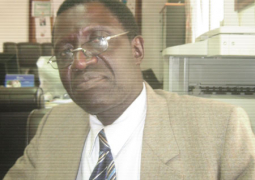The training, held at NACCUG office in Kanifing, Bertil Harding Highway, was designed to build the capacities of the participants on graduation microfinance – a model to expand access to financial services for the very poor.
The participants were also equipped on financial literacy and other cross-cutting issues such as gender.
The workshop was part of a project NACCUG is implementing with the financial support of the Irish League of Credit Unions Foundation which is funded by the Irish government through the Irish Aid.
Baboucarr Jeng, general manager of NACCUG, said the project is centred on Bwiam, Brikama and NBR but there are possibilities of it being extended to other regions of the country.
He said the participants of the training are to be trained as trainers. “After this training, you will be expected to deliver trainings to your various credit unions,” Mr Jeng said.“We will support but the presentations will be delivered by you.”
During the four-day training, GMF was one of the key focuses. It is a method of credit union support for poor people to become members of informal savings and loans groups.
The groups save and borrow together and receive support and education from the credit union when they meet weekly. Over time, the group members graduate to become full members of the credit union.
Bakary Bojang of NACCUG said the GMF model brings extremely poor people, mostly women, into a conservative savings orientated system, thereby reducing their longer term exposure to risk.
“GMF participants are usually the poorest of the poor with little or no assets, food insecurity, and low levels of literacy,” he said.“It (GMF) organises participants into solidarity groups to be able to access credit union services in the form of credit and saving of a small amount.”
With GMF, NACCUG officials said the poorer people will be able to access loans to venture into small-scale businesses and eventually start to make meagre savings, then gradually become regular credit union members.
Apart from GMF, based on the design of the programme, at the closure of the final day, the participants should be knowledgeably resourced on issues like savings, credit, loan, interest and most importantly know the different types of financial institutions and how they differ from credit union.


